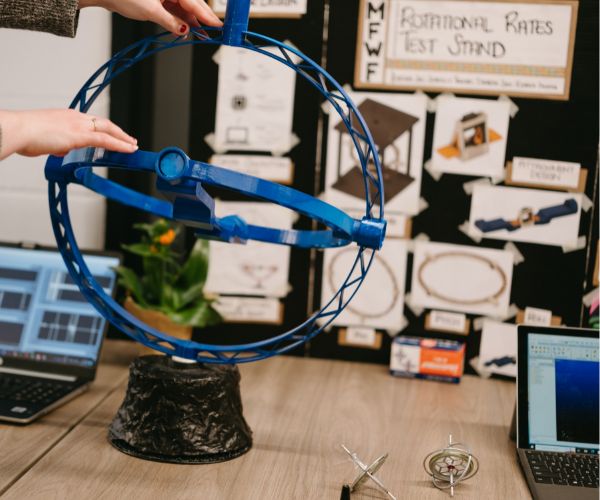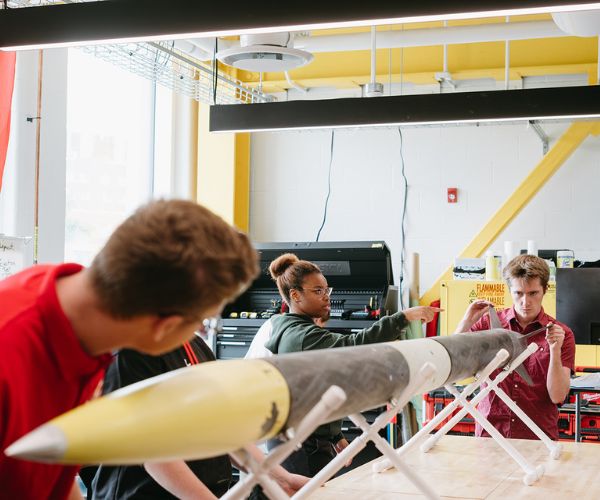Visit Carleton! Book your tour today.
Program Details
The Faculty of Engineering and Design’s Aerospace Engineering program in the Department of Mechanical and Aerospace Engineering emphasizes the development of analytical, computational, and hands-on engineering and design skills related to the aerospace field.
The Aerospace Engineering program is fully accredited by the Canadian Engineering Accreditation Board, allowing graduates to meet the educational requirements for registering as a professional engineer.
Specialty Streams
The broad range of topics and applications included in this discipline are covered in four main specialty streams:
- Aerodynamics (aerospace propulsion and atmospheric flight)
- Aerospace Structures (lightweight vehicles for flight and space travel)
- Aerospace Electronics and Systems (aircraft control, communication and navigation systems)
- Space Systems Design (astronautics and space/satellite technology)
All four streams emphasize the development of practical and problem-solving skills based on hands-on laboratory and design work.
Work Experience
A Co-op option is available. Co-op is the opportunity to get a head start on a career. Co-op work terms allow for the development of key employability skills, exploration of career options and graduation with tangible, workplace experience.

Get started in Carleton360 to receive tailored information on our programs, student services and community.

Career Outcomes
Explore your passions, refine new skills and discover the career that’s right for you.
As Canada's first accredited Aerospace Engineering program, Carleton has close connections to industry partners, giving students many career opportunities.
Sample Careers
- Aerodynamics
- Aerospace Industry
- Aircraft Communication
- Aircraft Control Systems
- Aircraft Navigation
- Aircraft Repair
- Aircraft Space Manufacturing
- Avionics
- Defense
- Launch Vehicles
- Piloted and Autonomous Aircraft
- Propulsion Systems
- Satellite Communications
- Satellite Systems and Operations
- Space Systems
- Spacecraft
- Structures
- Transportation

Sample Courses
ECOR 1041 - Computation and Programming
Software development as an engineering discipline, using a modern programming language. Language syntax and semantics. Tracing and visualizing program execution. Program style and documentation. Testing and debugging tools and techniques. Binary number system to represent data in a computer.
AERO 3002 - Aerospace Design and Practice
Design approach and phases. Design integration. Influence of mission and other requirements on vehicle configuration. Trade-off studies, sizing and configuration layout. Flight vehicle loads, velocity-load factor diagram. Structural design: overall philosophy, role in design process, methods. Basic orbital mechanics; launch vehicle sizing.
Visit the Undergraduate Calendar to view a comprehensive list of course offerings for this program and discover the exciting things Carleton students are learning in the classroom!

